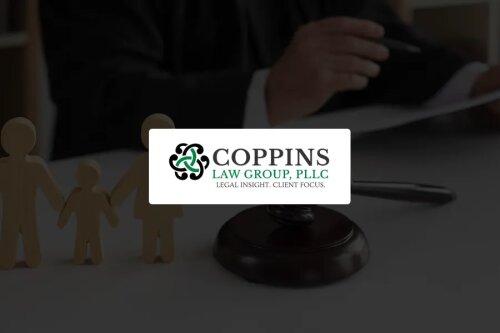Best Father's Rights Lawyers in New York City
Share your needs with us, get contacted by law firms.
Free. Takes 2 min.
Free Guide to Hiring a Family Lawyer
List of the best lawyers in New York City, United States
1. About Father's Rights Law in New York City, United States
Father's rights in New York City are guided by state statutes and court rules that balance a child’s best interests with a parent’s right to involvement. In New York, custody decisions and parenting time are handled primarily in Family Court or, in some cases, in Supreme Court as part of a divorce or separation action. Courts consider both legal custody, which governs major decisions, and physical custody or parenting time, which relates to the child’s daily life.
The core standard used by New York courts is the best interests of the child. This standard guides how parenting time and custody are allocated, including decisions about relocation, education, and healthcare. Practically, this means a father must show what arrangement best supports the child’s welfare, safety, and stability in the NYC context.
In New York, custody determinations rely on the 'best interests of the child' standard.Source: New York State Unified Court System and related family law resources.
Establishing paternity is often a prerequisite for a father to obtain legal rights to custody or parenting time and to pursue child support or enforcement actions. In NYC, paternity actions may be coordinated with custody or support filings, and orders can shape both access and financial obligations. Legal representation helps ensure paternity, visitation schedules, and financial responsibilities are addressed coherently in court.
NYC families navigate a system that includes Family Court in New York County, Kings County, Queens County, the Bronx, and Richmond County. Cases may involve temporary orders, enforcement actions, relocation requests, and modifications as circumstances change. Working with a solicitor or attorney who specializes in family law improves the likelihood of a focused, practical agreement or a favorable court decision.
For current text and updates, refer to official government sources such as the New York State Unified Court System and statute-based resources. These pages provide the authoritative framework for custody, paternity and support matters in New York City.
2. Why You May Need a Lawyer
- You seek a formal parenting time arrangement after years of informal access. A father in Manhattan or Brooklyn might want a legally enforceable schedule to spend consistent time with a child, including weekends or school holidays.
- You need to modify an existing custody or parenting time order due to a relocation. If you plan to move outside of New York City or out of state, a lawyer helps you navigate relocation standards and protective orders if applicable.
- You are an unmarried father establishing paternity to secure rights. Establishing paternity enables access to parenting time, decision making on major issues, and eligibility for child support responsibilities.
- Your income or work situation has changed significantly. A lawyer can help you request a modification of child support and/or custody to reflect new earnings, hours, or caregiving responsibilities.
- You need to enforce a court order for visitation or support that the other parent is not obeying. Legal counsel can pursue contempt motions or enforcement remedies in the NYC courts.
- You or your child face safety concerns or domestic violence issues. A lawyer can help obtain protective orders, safe visitation arrangements, or safe housing options while preserving parental rights.
3. Local Laws Overview
New York City children’s custody, visitation, and support matters are governed by several key statutes and regulations. Two core family law frameworks operate statewide and apply in NYC, with city-specific procedures for filing, hearings, and enforcement.
- Family Court Act (FCA) - Governs proceedings in Family Court for matters involving children, including custody, parenting time, guardianship, and protective orders. It establishes parental rights procedures, temporary orders, and enforcement mechanisms. For up-to-date text and amendments, refer to official sources.
- Domestic Relations Law (DRL) - Addresses child support, paternity, and related financial responsibilities of parents. The DRL provides the statutory basis for child support guidelines and paternity actions that affect fathers' rights and duties.
- Uniform Child Custody Jurisdiction and Enforcement Act (UCCJEA) - Governs jurisdiction and enforcement of custody orders across state lines. UCCJEA is designed to prevent conflicting orders when parents relocate or move between states, including considerations relevant to New York City families with ties abroad or to other states.
- Child Support Standards Act (CSSA) - Sets the guidelines courts use to determine child support amounts, based on parental income and the number of children. The CSSA is implemented through the DRL framework and used by NYC courts to calculate support obligations.
Recent updates and changes to these frameworks are published by the New York State legislature and the New York Courts. For the most current text and applicable dates, consult official government resources. These sources help confirm how the best interests standard, relocation terms, and enforcement provisions are applied in New York City.
Key government resources to review include the New York State Unified Court System and the New York State Legislature’s official law portals. They provide the authoritative language, amendments, and practical guidance for custody, paternity, and support actions in NYC.
4. Frequently Asked Questions
What is the difference between custody and visitation?
Custody concerns who makes major decisions for the child and where the child primarily lives. Visitation, or parenting time, governs when the other parent spends time with the child.
What is the best way to start a custody case in NYC?
File a petition in the appropriate Family Court and schedule a first appearance. A lawyer helps prepare proposed orders and timelines with the judge.
How long does a typical custody case take in NYC?
Final determinations often take 6 to 12 months, depending on court calendars, complexity, and whether temporary orders are needed.
Do I need a lawyer for child custody in NYC?
While not mandatory, a lawyer increases your chances of an organized filing, proper service, and strong advocacy at hearings.
How much does a custody lawyer cost in NYC?
Fees vary by attorney and case complexity. Expect consultation fees, hourly rates, and potential flat fees for certain services.
What is joint custody in New York?
Joint custody can involve joint legal custody and/or joint physical custody. The court emphasizes the child’s best interests in shaping custody rights.
Can I modify a custody order after it is issued?
Yes. You may seek a modification if there is a substantial change in circumstances affecting the child’s welfare.
When can I relocate with my child in NYC?
If relocation affects the child’s welfare or contact with the other parent, you may need court approval or may face opposition and a hearing.
Where do I file for custody in NYC, and what forms are needed?
Filing generally occurs in Family Court. A lawyer can help prepare petitions, affidavits, and proposed orders with required metadata.
Why does the court consider the child’s best interests?
The standard protects the child’s safety, stability, and emotional and educational development as primary considerations.
How is child support calculated in NYC?
NYC courts apply the Child Support Standards Act guidelines, considering both parents’ incomes and the child’s needs.
Do you have to prove paternity to obtain custody or support?
Paternity often impacts both child support obligations and custody rights. A formal determination clarifies parental responsibilities.
5. Additional Resources
- New York State Unified Court System - Official court system website providing family law information, self help resources, and access to forms for custody, visitation, and support matters. Visit: nycourts.gov
- Office of Child Support Enforcement (OCSE) - U.S. Department of Health and Human Services - Federal resource with guidance on child support programs, enforcement, and parentage issues that affect NYC families. Visit: acf.hhs.gov/ocs
- Legal Aid Society - Family Law Practice - NYC-based nonprofit providing free or low-cost legal assistance to eligible individuals in family court matters, including custody and support. Visit: legalaidnyc.org
6. Next Steps
- Define your goals and gather documents Gather birth certificates, paternity documentation, previous orders, and any communication related to parenting time. Have recent pay stubs and tax returns ready for income calculations.
- Identify a qualified Father’s Rights attorney in NYC Look for a solicitor who specializes in family law and has experience with NYC custody and support matters. Ask about track record and approach.
- Schedule a consultation and prepare questions Bring your goals, budget, and a list of concerns. Ask about expected timelines, fees, and document needs.
- Decide where to file based on the case type Most custody and parenting time matters start in Family Court; divorce-related issues may go to Supreme Court. An attorney helps determine the right venue.
- File your petition and request temporary relief if needed Ask for temporary orders to establish immediate parenting time or protections while the case proceeds.
- Attend hearings and present evidence Your attorney helps prepare witnesses, documentation, and a coherent narrative for the court.
- Follow orders and plan for enforcement if necessary Use court-approved methods to enforce custody, visitation, or support orders if the other parent does not comply.
Lawzana helps you find the best lawyers and law firms in New York City through a curated and pre-screened list of qualified legal professionals. Our platform offers rankings and detailed profiles of attorneys and law firms, allowing you to compare based on practice areas, including Father's Rights, experience, and client feedback.
Each profile includes a description of the firm's areas of practice, client reviews, team members and partners, year of establishment, spoken languages, office locations, contact information, social media presence, and any published articles or resources. Most firms on our platform speak English and are experienced in both local and international legal matters.
Get a quote from top-rated law firms in New York City, United States — quickly, securely, and without unnecessary hassle.
Disclaimer:
The information provided on this page is for general informational purposes only and does not constitute legal advice. While we strive to ensure the accuracy and relevance of the content, legal information may change over time, and interpretations of the law can vary. You should always consult with a qualified legal professional for advice specific to your situation.
We disclaim all liability for actions taken or not taken based on the content of this page. If you believe any information is incorrect or outdated, please contact us, and we will review and update it where appropriate.
















